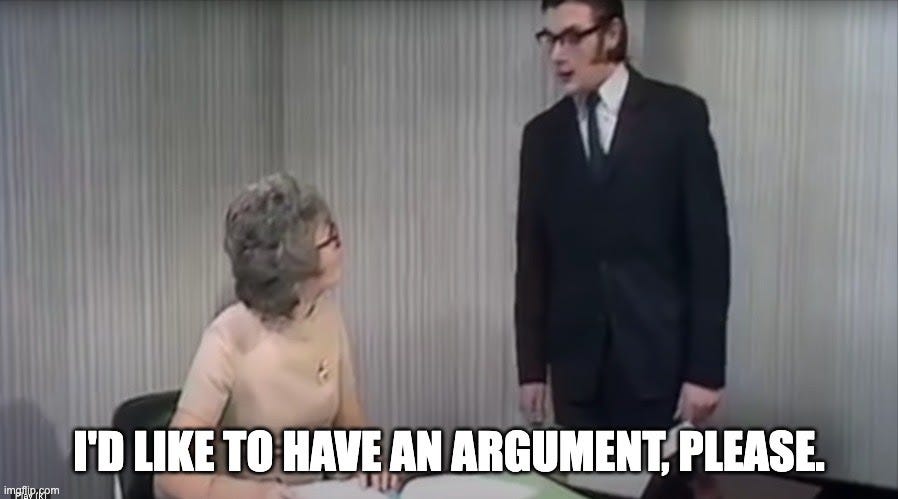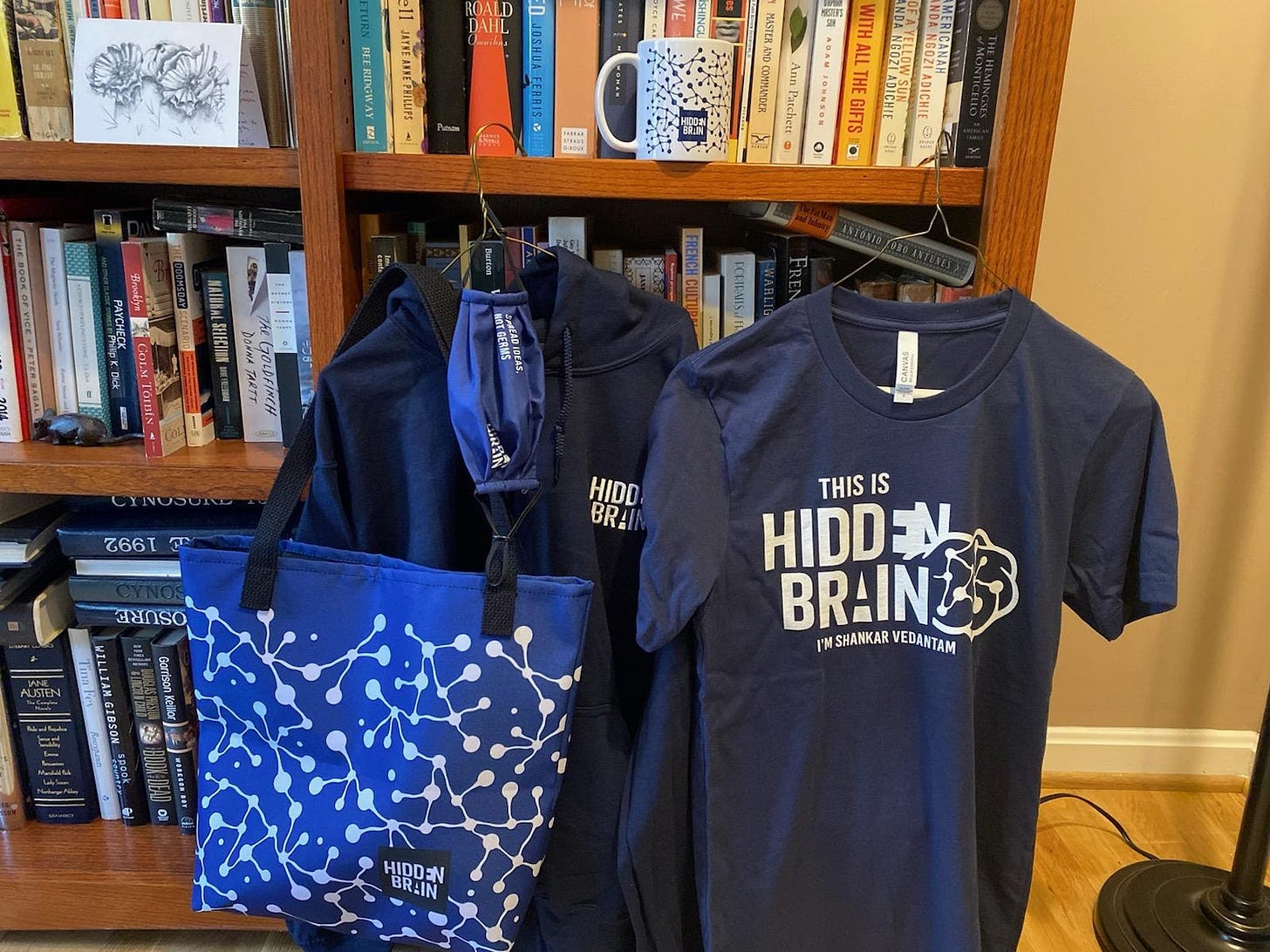The key to more productive arguments
Plus, getting climate policy to stick
“Friction is the psychological force that resists change...We tend to dramatically underestimate the power of these frictions.” — Loran Nordgren, the Kellogg School of Management
BRAIN WAVES
Agree to (productively) disagree? Disagreements can be a good thing — they expose us to new perspectives and give us a chance to get on the same page with others. Of course, they can just as easily become hostile, antagonistic, and unproductive. “In a disagreement, explaining language, such as ‘because’ and ‘therefore’, can be seen as condescending,” writes Michael Yeomans, assistant professor of organisational behaviour at Imperial College Business School in London. The good news is, we can learn to argue better. Yeomans shares a few key features of productive disagreement. First, there’s acknowledgment. Make sure the other person feels heard and understood. It also helps to hedge — rather than speaking in absolutes, soften your argument with words like “probably” or “sometimes.” Finally, and maybe most importantly, Yeomans recommends finding common ground. “Humans have so much in common, but those things we agree on can be hard to notice when we are focused on the things we don’t agree on,” he writes. This can be especially important to remember when you’re fighting with a partner or spouse. “In an argument, there is always something you have in common, and it’s helpful to state that explicitly,” he says. With a few tweaks, you could be arguing in your spare time.
Making change. This week, world leaders are meeting in Glasgow to discuss climate change. Fighting climate change — or adapting to it — requires policymakers to take action. But it also requires public support. New research offers insight on how to get people on board with these policies. Researchers looked at what kind of climate efforts Americans are most likely to support. People in the study seemed to prefer policies that use incentives — like tax breaks or rebates for adopting more eco-friendly choices — rather than policies that use disincentives, like a luxury tax on high-electricity users. But people were more open to policies that use disincentives when those policies were imposed on businesses rather than individuals. “Policies can't mitigate climate change unless they're put into action,” said Janet Swim, a co-author of the study and professor of psychology at Penn State. “So it's important to consider public reactions to these policies if they're going to be ultimately successful.”
Self-criticism is often seen as a virtue. But there may be a better path to self-improvement: self-compassion. People who practice self-compassion are more conscientious and more likely to take responsibility for their mistakes. Listen to learn more.
BIG NEWS
The Hidden Brain store has officially launched! From notebooks to coffee mugs to face masks, our new merch is now available for your holiday gift list. Fun fact: these items were brainstormed by the Hidden Brain team! We hope you like them.
ON THE HIDDEN BRAIN PODCAST
Nov 1: This week, we kick off our new Work 2.0 series. We’ll explore the psychology of motivation and how you can derive greater satisfaction from your work. In our first episode, we look at a common impediment to innovation: our inclination to focus on the things that can move us forward, rather than on the obstacles that hold us back.
Nov 8: Play and work may have more in common than we think. Both involve painstaking effort and repetitive tasks. Yet many people pay money to do one set of activities and resent doing the other. In this episode, what the world of work can learn from the psychology of games.
ON THE MY UNSUNG HERO PODCAST
Oct 28: This week on My Unsung Hero, we meet listener Heather Church. One day, Heather slips on the stairs at a busy clothing store. As she begins to fall backwards, she hears footsteps racing toward her.
MIND GAMES
Four cars arrive at a four-way stop, all coming from a different direction. They can’t decide who got there first, so they all go forward at the same time. They don’t crash into each other. How is this possible?
LAST WEEK’S PUZZLE
A couple has six daughters. Each daughter has one brother. How many people are in the family?
The answer: Nine. Each daughter has the same brother.
FROM THE TWITTERATI…
A SPECIAL NOTE
We’d like to take a moment to celebrate a few important people in the field of psychology.
Mihaly Csikszentmihalyi was known for his work on flow, “a state in which people are so involved in an activity that nothing else seems to matter.” In his book, Flow: The Psychology of Optimal Experience, Csikszentmihalyi wrote, “The best moments usually occur when a person’s body or mind is stretched to its limits in a voluntary effort to accomplish something difficult and worthwhile.” He died on October 20, 2021.
Sir Michael Llewellyn Rutter was a child psychologist who changed the way we think about autism. He published a landmark study that found genetic factors play an important role in autism, and his work also focused on the challenges autistic people face as they get older. He died on October 23, 2021.
Aaron Beck was regarded as the father of cognitive behavioral therapy and co-founded the Beck Institute for Cognitive Behavior Therapy, a nonprofit that provides CBT treatment and research, with his daughter, Dr. Judith Beck. He died on November 1st, 2021. “My father was an amazing person who dedicated his life to helping others,” his daughter said.
A MOMENT OF JOY
We are always ready for puppy pandas.
Have an idea for Hidden Brain? A story you want to share with us? Send an email to ideas@hiddenbrain.org. And if you’d like to support our work, you can do so here. Listen to us on Spotify, Apple or your favorite podcast platform.






